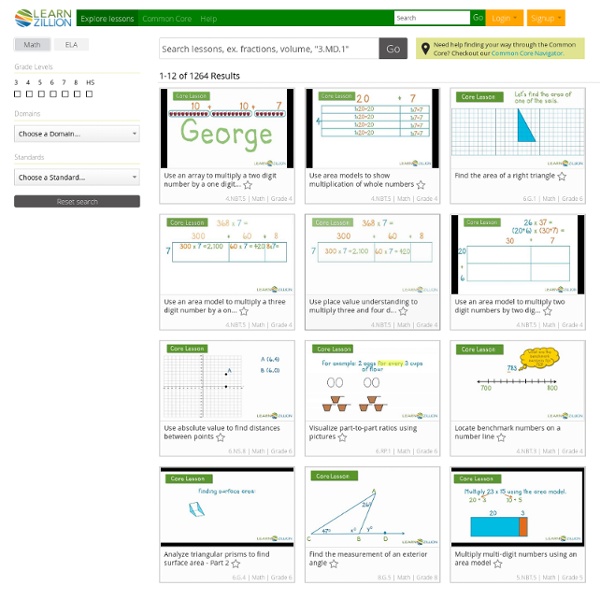Ride the Line...A Game for Parallel & Perpendicular
Last week we were investigating linear equations....in particular what parallel and perpendicular lines look like as equations, not just graphs. When you do all the graphing by hand or even on a handheld graphing calculator, this is pretty slow. Also the Common Core calls upon us to provide more discussion oriented kinds of learning designs....we're incorporate a bunch of the mathematical practices here---reason abstractly, construct viable arguments and accept feedback, model and use tools to investigate math ideas. I'd say that this is a CCSS home run. I tried a different learning technique, so in honor of #msSunFun this is my game contribution.
Math Snacks - Number Rights
Whole numbers are no better than any others! Practice plotting values on the number line as a passionate activist rises up and demands equity for all numbers, including fractions and decimals. Number Rights includes Learner's Guide | Teacher's Guide | Teaching With | Comic Transcript Whole numbers are no better than any others!
Academic Review Games
The Teachers' Zone » Classroom Ideas » Academic Review Games TRASH BALLTrash Ball is a popular game in our high school. I think most of our departments use it. Divide your class into two groups.
Pythagorean Theorem
Use this activity to help your students discover the Pythagorean theorem. Pythagorean theorem work is often skill and drill work with contrived right triangle problems. In this activity students work with a visual representation of the Pythagorean theorem in order to gain a conceptual understanding of the theorem. Students can engage in several of the standards of practice including: (3) construct viable arguments and critique the reasoning of others, (4) model with mathematics, (7) look for and make use of structure, and (8) look for and express regularity in repeated reasoning. Students can also engage in practice 5: use appropriate tools strategically by using a program such as Geometers Sketchpad or Geogebra to investigate the theorem.
Ratio and proportion test
You can print your ratio and proportion test before you start taking the test Name _____________________ Date:_____________________ Solve the following problems 1.
Introduction to Functions
There are many algebra books that have many ways of defining a function. Chances are if you look at four different books you would find at least two different explanations of a function. Does this mean some explanations are right and others are wrong or that there are numerous definitions for a function? Not really. The definition of a function never changes, but the way teachers and textbooks explain that definition take on many forms. We’re going to look at functions in the following way.
Math Snacks - Pearl Diver
Learn the number line while diving for pearls amidst shipwrecks and sunken ruins. Perfect for grades 3-8 and other fun-loving seafarers. Play here, or download Pearl Diver App for your iPhone/iPod or iPad <a href=" width="160" height="41" alt="Get Flash Player" src="media/img/pearldiver/getFlashPlayer.gif"><br /><span class="caption">Get Adobe Flash Player to view Pearl Diver.</span></a>
Assessment Rubrics
Math Standards-Based Math Rubric The Exemplars Standards-Based Math Rubric was updated in 2014 to reflect more current standards. It supports NCTM Process Standards and the Common Core State Standards for Mathematical Practice.
Rise-Run Triangles
To start the lesson, ask students what they already know about slope. They may know terms such as rate of change and rise over run. Often, students have recollection of these terms but don't remember or understand what they mean or how they relate to slope. Ask students what it means to have positive or negative slope. Encourage a student to come to the front of the room and draw a line with positive slope. Ask classmates if they agree that the line has positive slope, and then ask how they can tell.
Linear Functions in Action
Activity 1 Provide students with a Scatter Plot worksheet (M-8-7-3_Scatter Plot.docx) and project the following scatter plot for students to see (the plot below is identical to the one on the worksheet): “This scatter plot shows the heights of 24 different kids from ages 1 to 7 years.” Review how to read a scatter plot (i.e., ask students to estimate the heights of the three 1-year-olds, the 5-year-olds, etc.), to ensure that they are reading the scatter plot correctly. “Does the scatter plot tell us anything about the heights of any 8-year-olds?”



